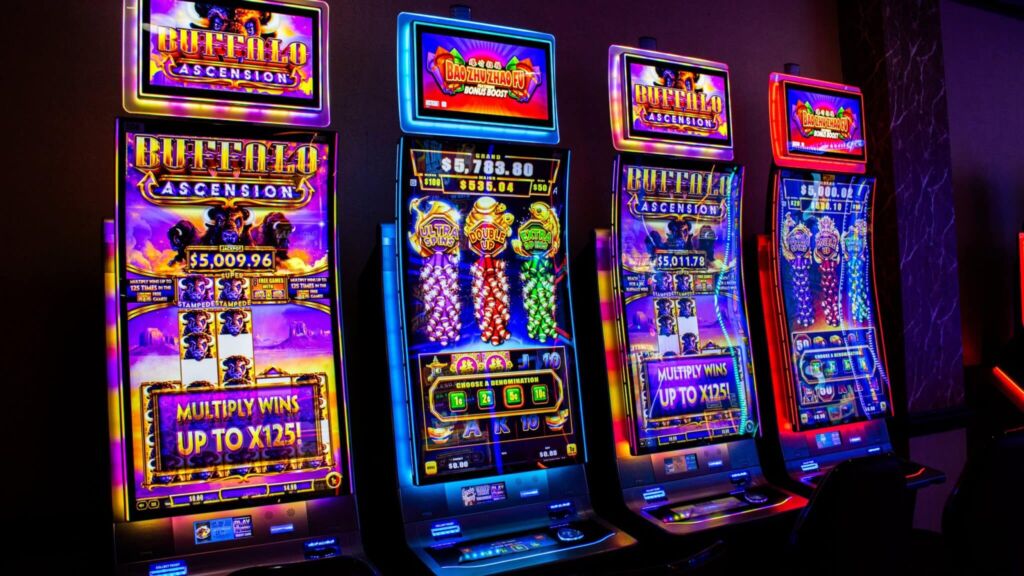For slot machines, whether online or in physical casinos, a key element is the Random Number Generator (RNG). Players perceive these games as relying solely on fortune, aiming for a lucky combination for a win. Yet, the outcome of each spin is determined by sophisticated algorithms where the RNG is pivotal. This article delves into RNGs, their functioning, and their impact on game experience and fairness.
Whether you're new to slot machines or a seasoned player eager to delve into the technology behind these games, this guide provides valuable insights. We explore RNG mechanics, their role in result determination, and offer tips for a tech-informed approach to slot machines.
What is an RNG?
In gaming, a Random Number Generator (RNG) is a computing algorithm that produces random gaming results. In slot machines, it dictates each spin's result, keeping each outcome independent and distinct from others. By producing thousands of random numbers per second, the RNG designates numbers that align with particular symbols on the slot reels when you make a spin.
RNGs in slot gaming ensure randomness, making future outcomes unpredictable and results unalterable, which is essential for maintaining fairness in both online and in-person casinos. With such randomness, players cannot rely on patterns to gain an edge.
Types of RNGs Used in Slot Machines
RNGs are generally split into two types: true RNGs and pseudo-RNGs, both serving the purpose of ensuring random outcomes in slots, albeit through slightly varied mechanisms.
True RNGs
A true RNG generates random digits through physical processes, like radioactive decay, providing a high level of randomness. Such RNGs are infrequently utilized in slots due to their high cost and complexity, though they support applications needing top-tier randomness.
Pseudo-RNGs
Slot machines mainly employ pseudo-RNGs, which are algorithms using intricate math to produce random patterns. Although not 'truly' random in absolute terms, they deliver sufficient randomness and are widely approved in the gaming sector for their practicality and fairness.
For online slots, game providers incorporate pseudo-RNGs for determining spin results. These systems undergo verification by third-party auditors to meet fairness and randomness benchmarks.
How RNGs Work in Slot Machines
To gain insight into how RNGs affect slot gameplay, let's examine the sequence occurring when you hit spin.
1. RNG Initialization
With the start of each slot game, the RNG initiates, continuously generating random numbers. For digital slots, this process happens rapidly. Each number signals a determined spot on each reel of the slot machine.
2. Player Action
Upon hitting spin, the RNG pauses, and the set of numbers produced at that moment finalizes the spin's outcome. Each number aligns to a reel symbol, determining the visible symbols post-spin.
3. Outcome Determination
The spin outcome comes from aligning generated numbers to reel symbols. For example, a specific number might represent 'cherry' on one reel and 'bar' on another, collectively determining your win based on paylines and game rules.
4. Post-Spin Analysis
Post RNG outcome determination, slot machines assess payouts based on symbol matching and bet amounts. Whether you take home a win or not, the RNG preps new results for future spins.
Understanding RNGs' Role in Slot Integrity
RNGs are central in ensuring the unpredictability and fairness of slot machines, independent of gaming strategies that may apply to games like poker or blackjack.
Ensuring Fair Play
RNGs play a critical part in upholding game fairness by providing random outcomes. Online and land casinos adhere to strict RNG standards, ensuring unbiased game results.
House Edge and RTP
Though maintaining game fairness, RNGs also impact a casino's house advantage and the slots' Return to Player (RTP) rate, with house edges signifying casino profit percentages and RTP describing player-winning proportions over extended play.
In online slots, developers set the RTP, usually between 92% - 98%. A slot with a 95% RTP means, ordinarily, $95 of every $100 bet returns to players as winnings over time, confirming the house retains what's left.
Fun Fact:
For most online slots, top existing RTPs hover around 98%, signifying a vast potential return, though initially calculated across numerous spins, not guaranteeing short-term payouts.
Play Slot Machines Knowledgeably with RNG Understanding
Equipped with knowledge of RNG function and their fairness guarantee, you can choose slots wisely, particularly those with favorable RTPs, distinct from RNGs' roles.
1. Focus on RTP, Not on the RNG
Trying to anticipate or 'outplay' the slots is unfeasible due to RNG-driven randomness. Focus on enjoying the entertainment while understanding the odds and limitations.
2. Avoid Trying to “Beat” the RNG
Slot machines vary in volatility, affecting payout frequency and size. High-volatility games may grant larger, sporadic wins, whereas low volatility offers frequent, smaller rewards. Understanding this dynamic aids in planning your gaming strategy and budget.
3. Understand Volatility
Conclusion: How RNGs Affect Slot Gameplay
RNGs underpin the integrity of slot play, enabling fair, isolated spins impervious to manipulation. A deeper RNG knowledge provides a broader view of game mechanics.
For both beginner and expert users, understanding RNG impacts on gameplay and RTPs enriches the slot experience and guides informed game selection, always keeping the essence of gaming as pleasure-driven entertainment.
Wishing you well and hoping the slot reels favor your spins!
♤ This piece was initially released on September 6, 2024, and received updates on January 11, 2025, to uphold its precision and relevance.



